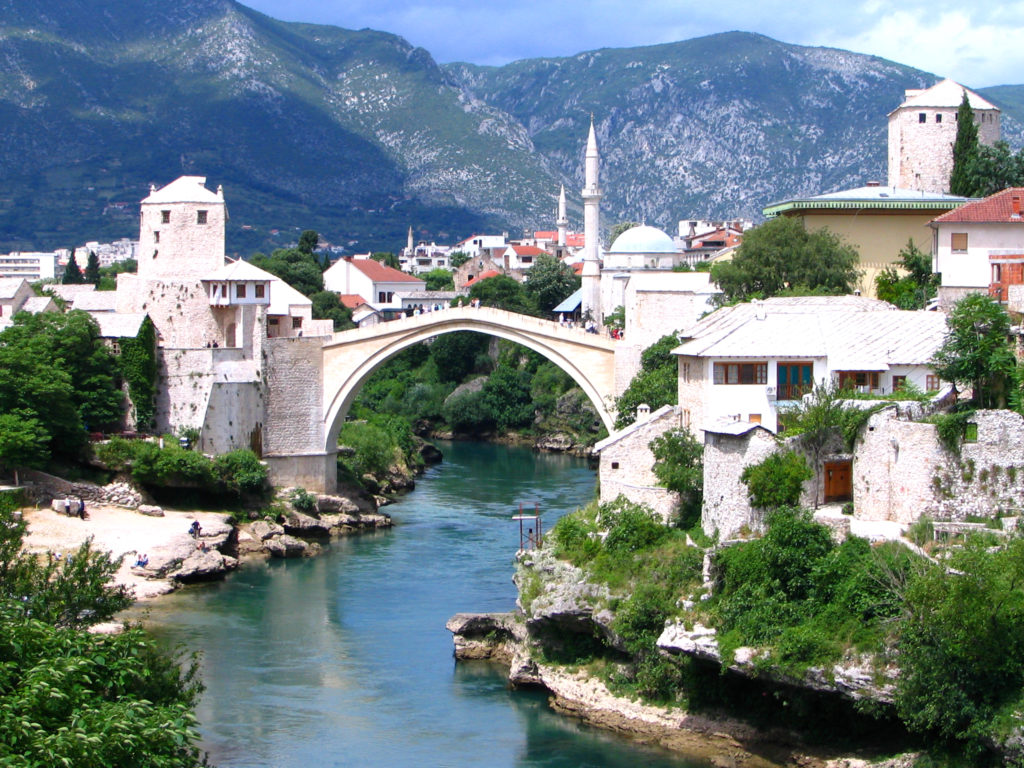Taiwan’s efforts to establish diplomatic relations with the Western Balkans region have so far been unsuccessful, and its presence in the region is limited. The lack of diplomatic or representative offices for Taiwan in the Western Balkans, combined with the strong diplomatic, political, and economic ties with China, highlights the limited progress Taiwan has made in the region.
Western Balkans countries’ position on Taiwan relations is not high on the list of foreign policy priorities. The majority take their stance on Taiwan’s status and relations based on their relations with PRC. There have been recent attempts by Taipei to establish diplomatic relations, but as of today, no country from the region has done so or has withdrawn recognition in response to Beijing’s pressure.
While Taiwan maintains diplomatic or quasi-diplomatic relations with countries around the world, there are no diplomatic or representative offices in any of the Western Balkans countries. Although that is a practice in certain countries in Europe, and around the world, none of the region’s countries have Taiwan representative office opened or recognize Taiwan as an independent country. The closest Taiwan representative offices are in Hungary and Greece, with the Budapest office being particularly active in the region, with a focus on securing visa liberalization for Taiwan citizens. Except in Serbia, Taiwanese do not require a tourist visa to visit the Western Balkans for leisure purposes. Aside from that, in recent history, representative offices have worked on the establishment of parliamentary friendship groups, which have so far only been formally established with the Kosovar parliament, while no other parliament from the Western Balkans has neither formal or informal cooperation of this type. It is also worth noting that, with the exception of Kosovo, all Western Balkans countries have developed diplomatic, political, and economic ties with the PRC, to varying degrees. Five of the region’s six actors are members of the China-Central and Eastern Europe cooperation mechanism (formerly known as “17+1” and “16+1”) and recognize Beijing’s version of the “One China” policy as their stance on Taiwan’s status.
Except for Albania, all of the Western Balkans countries gained independence following the dissolution of the Socialist Federal Republic of Yugoslavia. Prior to that, neither Yugoslavia nor Albania had diplomatic relations with Taiwan, and they maintained good relations with the PRC due to the nature of their own political system led by a communist party.
Following the 1990s dissolution (Montenegro gaining independence in 2006 and Kosovo declaring independence in 2008), countries approached the Taiwan issue separately, with some newly established countries attempting to establish official relations.
Stagnating relationship
North Macedonia (then known by a different, disputed name) became the only European actor (at that time only along with the Vatican) to recognize Taiwan as an independent country and establish official diplomatic relations in 1999. This recognition resulted from a promise from Taiwanese private investors to invest $1 billion in the country if diplomatic recognition was granted. That is how the Macedonian government leaders presented it at the time. The truth was that the opportunity for private investment from Taiwan was presented, but there were no official agreements between governments. Furthermore, this was all happening during the pre-election campaign in 1998, and the issue became heavily politicized. The governing coalition quickly disintegrated, and the promised Taiwanese investment never materialized. Eventually, Skopje withdrew recognition in 2001, following Beijing’s breaking off of diplomatic ties with North Macedonia, and even the use its UN Security Council permanent membership to veto the presence of a UN peacekeeping mission in North Macedonia. In 2001, the Skopje government re-established relations with Beijing and signed a joint communication stating that Taiwan is considered an inalienable part of Chinese territory. This ended the brief adventure of attempting to strengthen relations between Skopje and Taipei, and turned North Macedonia to the PRC.
There have been no significant developments in Albania, Bosnia and Herzegovina, or Montenegro’s bilateral relations with Taiwan. During the communist regime in the second half of the 20th century, Albania was seen as the PRC’s closest European ally, and Tirana even sponsored Resolution 2758, which, upon adoption, transferred its recognition of Beijing as China’s legitimate government and recognized the PRC as a sovereign actor, while withdrawing recognition of Taiwan. Nonetheless, there were attempts to establish an Association of Friendship between Albania and Taiwan in 1999, but it was quickly abandoned because the government in Tirana instead decided to revitalize cooperation with Beijing with the promise of financial aid and loans for infrastructure projects. This was reiterated in a joint communique in 2000 in which Albania stressed its support for the “One China” policy.
Given that Montenegro regained independence in 2006, there have been few and insignificant developments in the field of bilateral cooperation. The one case worth mentioning was a visit by a group of Montenegrin parliamentarians to Taipei in 2019. Led by current prime minister, but at that time opposition leader, Dritan Abazović, the delegation’s visit to Taiwan prompted strong reactions from the PRC embassy in Podgorica and required the official statement from Montenegrin parliament which reiterated its support for the “One China” policy and stressed that it was not, by any means, an official visit. This was not the only strong reaction from the PRC embassy on the matter. The embassy also reacted to an interview that one Montenegrin media outlet conducted with the Taiwan’s Minister for Foreign Affairs Joseph Wu, stating that the interview harmed relations between Montenegro and China. Similar to this case, the PRC embassy in Sarajevo reacted to the mention of Taiwan as independent country in Bosnian media outlet, repeating the diplomatic mantra in this case that it is a “serious violation of the Declaration on the establishment of diplomatic relations between the PRC and Bosnia, and causes damage to the basis of the development of bilateral relations”.
While all of the cases mentioned are relevant, the most impactful factor defining Taiwan’s position within the Western Balkan region are the parallels drawn between two cases of territorial disputes: one being Taiwan’s status in relation to the PRC and the second being Kosovo and Serbia’s attempts to dispute Kosovo’s independence, which Prishtina proclaimed in 2008.
Serbia-Kosovo parallel
Both Kosovo and Taiwan do not have full international recognition, including the fact that neither are members of the United Nations. But Kosovo is in a fairly better position with close to 100 countries recognizing Kosovo’s independence, while Taiwan is fully recognized by just 14 countries in total. Alignment between Belgrade and Beijing on these territorial disputes and contested independence has been an important policy point on both sides. Serbia fully aligns with the “One China” policy promoted by the PRC, while China doesn’t recognize Kosovo and brings additional legitimacy to the efforts to dispute independence as a permanent member of the UN Security Council.
Over the past decade, China and Serbia have developed a comprehensive strategic partnership, while Beijing has limited any possibility of Belgrade and Taipei developing relations.. With the outbreak of Russian aggression in Ukraine and the intensification of Beijing’s narrative on the need to secure the unification of Chinese territories, mutual support between Serbia and China has been especially highlighted. Belgrade authorities have even reacted to media mentions of Taiwan being an independent country, with its Ministry of Foreign Affairs criticizing daily “Danas’” who re-published the interview of Taiwanese Minister Wu. Although no diplomatic connections have developed, certain economic cooperation between Serbia and Taiwan exists. Most notably, a car-parts factory Mei Ta Europe opened its branch in Serbia in 2017 and expanded facilities two years later. While it has been referred to Chinese investment, the headquarters of the Mei Ta are based in Taiwan. For a long period of time, the National Bank of Serbia recorded investment from Taiwan separately (referring to Taiwan as Chinese province) from that coming from mainland China, but recently all of the investment coming from Taiwan, Hong Kong and Macao are included under the name of China. The impact and presence of Taiwan in Serbia, as well as recognition, remains very limited.If bilateral relations between Belgrade and Beijing continue to develop on the same trajectory, it will remain like that.
The situation with Kosovo is not that different, as mentioned, and there are certain bilateral relations between two sides, even though Prishtina doesn’t recognize Taiwanese independence. In addition to aforementioned parliamentary group trip top Taiwan, very limited bilateral relations were established with the main reason being, as China watcher from North Macedonia, Ana Krstinovska states: “According to some Kosovo diplomats, the Kosovo state was so cautious that even economic relations and other forms of informal cooperation (with Taiwan) — which Kosovo could benefit from and which would be uncontroversial in China — were also ruled out as an option.” It is to be seen whether authorities in Prishtina will be willing to open a new chapter of cooperation and on which level. It heavily depends on the future developments of dialogue with Belgrade and resolvent of independence dispute, but also on the position of Beijing because it is not in the PRC’s interest to have examples of successful separatism and international legitimization of such efforts due to its internal struggles and situation.
Little room for growth
It is unlikely that Taiwan will significantly expand its presence in the Western Balkans. The position will be defined by the relationship between the region’s countries and the PRC, and even if some internal issues are resolved (such as the Belgrade-Prishtina dialogue), it is unlikely that countries will be willing to recognize Taiwan due to relations with the PRC and Beijing’s presence in the region. There is no Taiwan Representative office even in the countries with somewhat better relations with Taiwan (Kosovo, North Macedonia, Montenegro), so the diplomatic outreach, while existing, is limited. It is not to be expected that relations could be improved on the highest official and political level, there have been examples of Taiwanese represenatives reaching out to the representatives of opposition parties (in Montenegro) and non-governmental organizations (Serbia). It has been met with a strong response by PRC embassy and domestic institutions, but it is more plausible that relations could be established with non-governmental actors.
What can change is that all of the Western Balkan countries have expressed interest in joining the European Union, and five of them have candidate status (all except Kosovo). The accession process necessitates alignment with EU policies (both political and economic), and it may allow for the development of relations on a par with EU countries. This would also allow for the further development of informal diplomatic relations, economic cooperation, and cultural ties, particularly in countries that have not developed relations with China on the same scale as Serbia. Until then, it is unlikely that relations with Taiwan will be high on the priority list of governments throughout the region.
Foto: Flickr / David Dufresne






